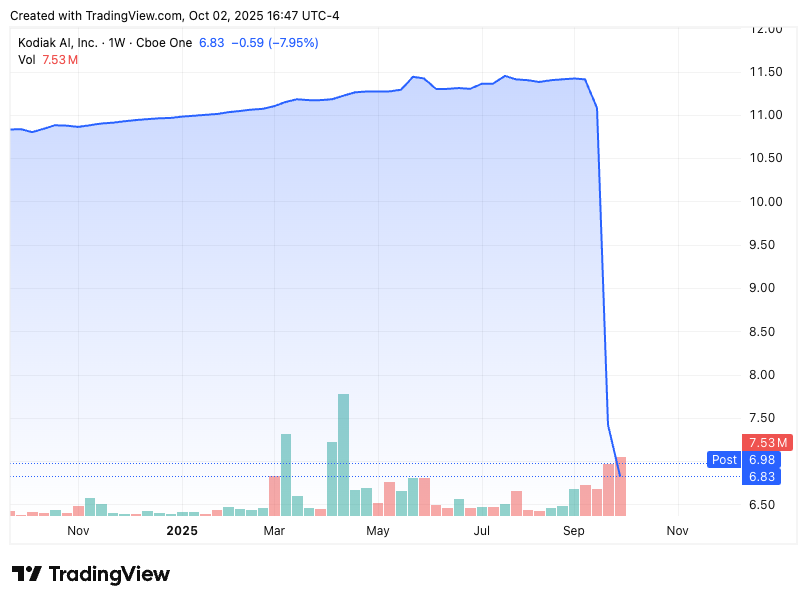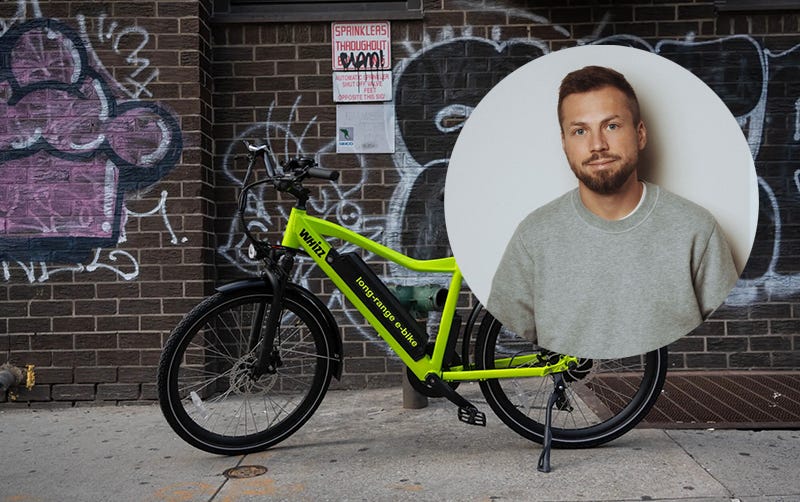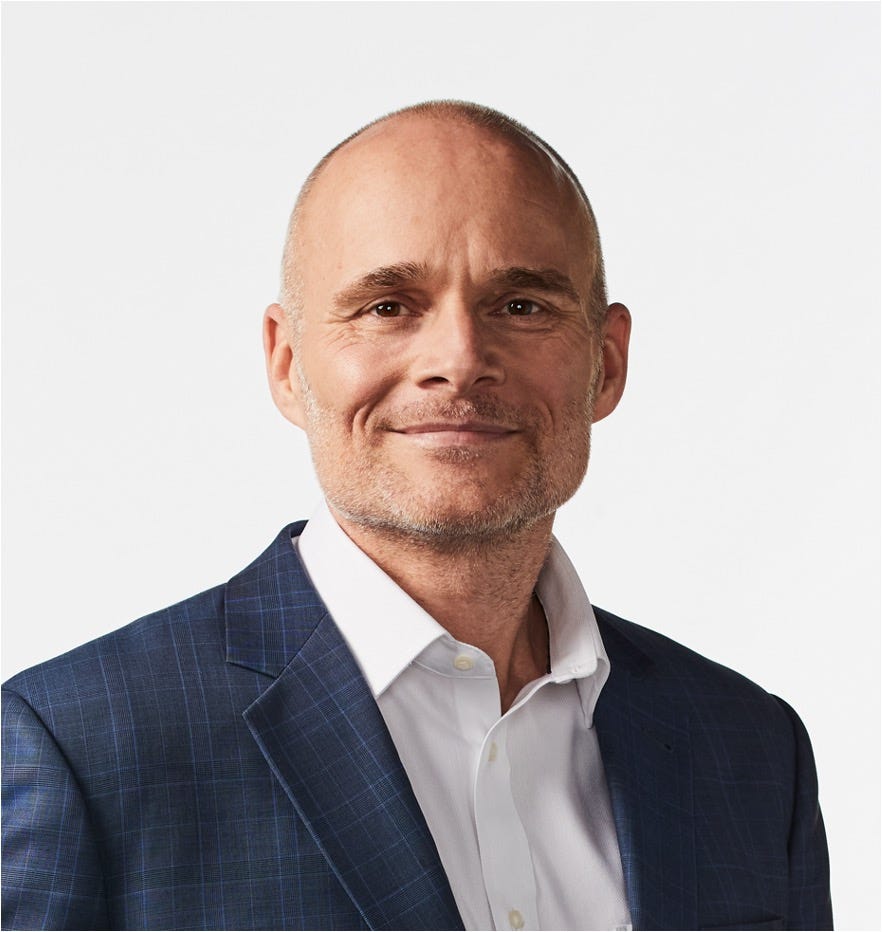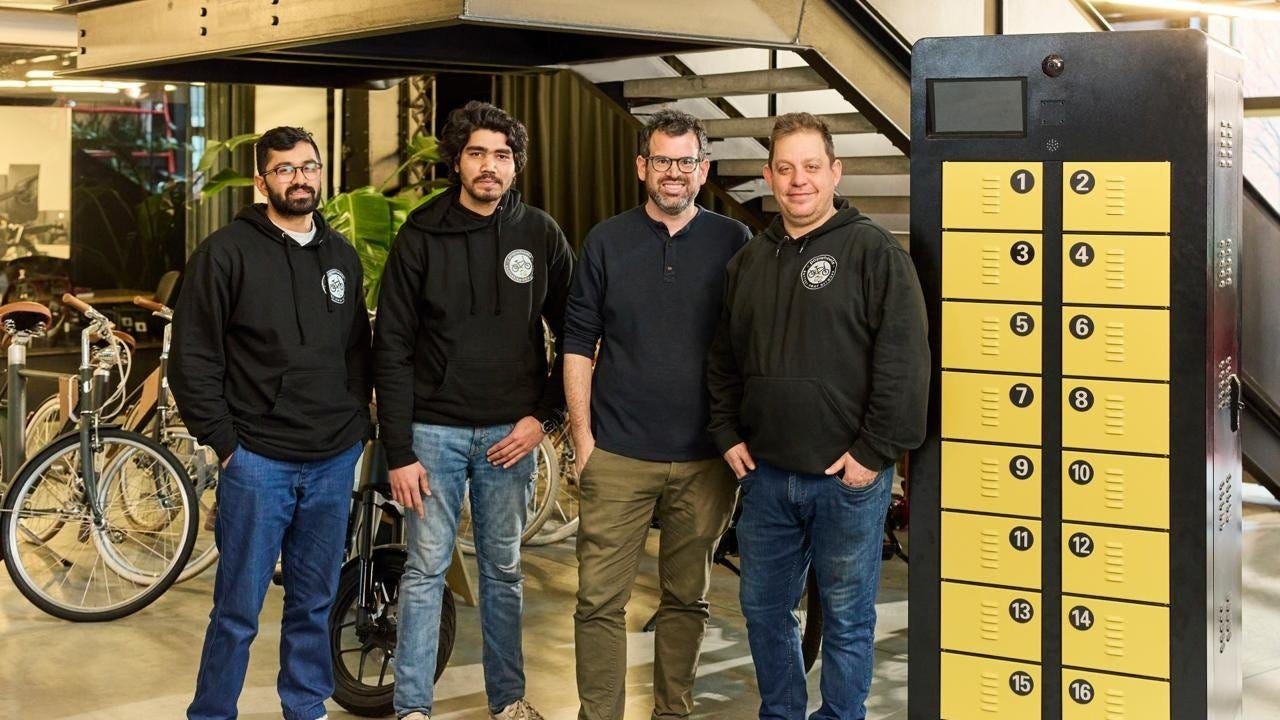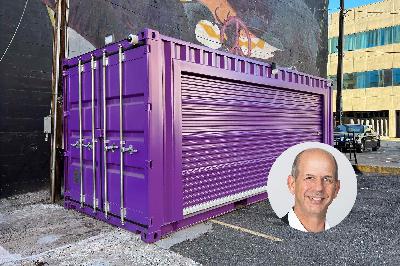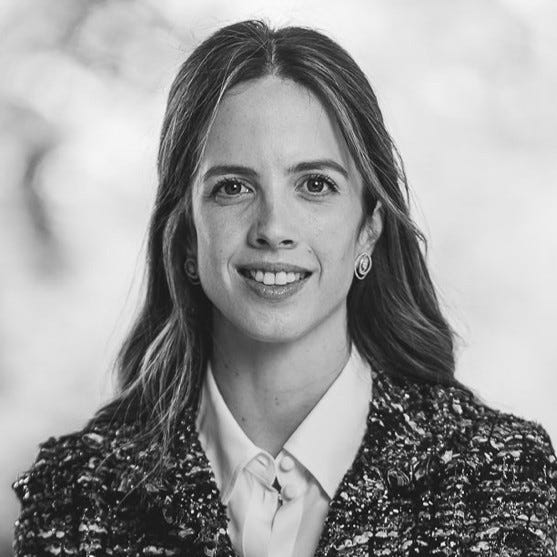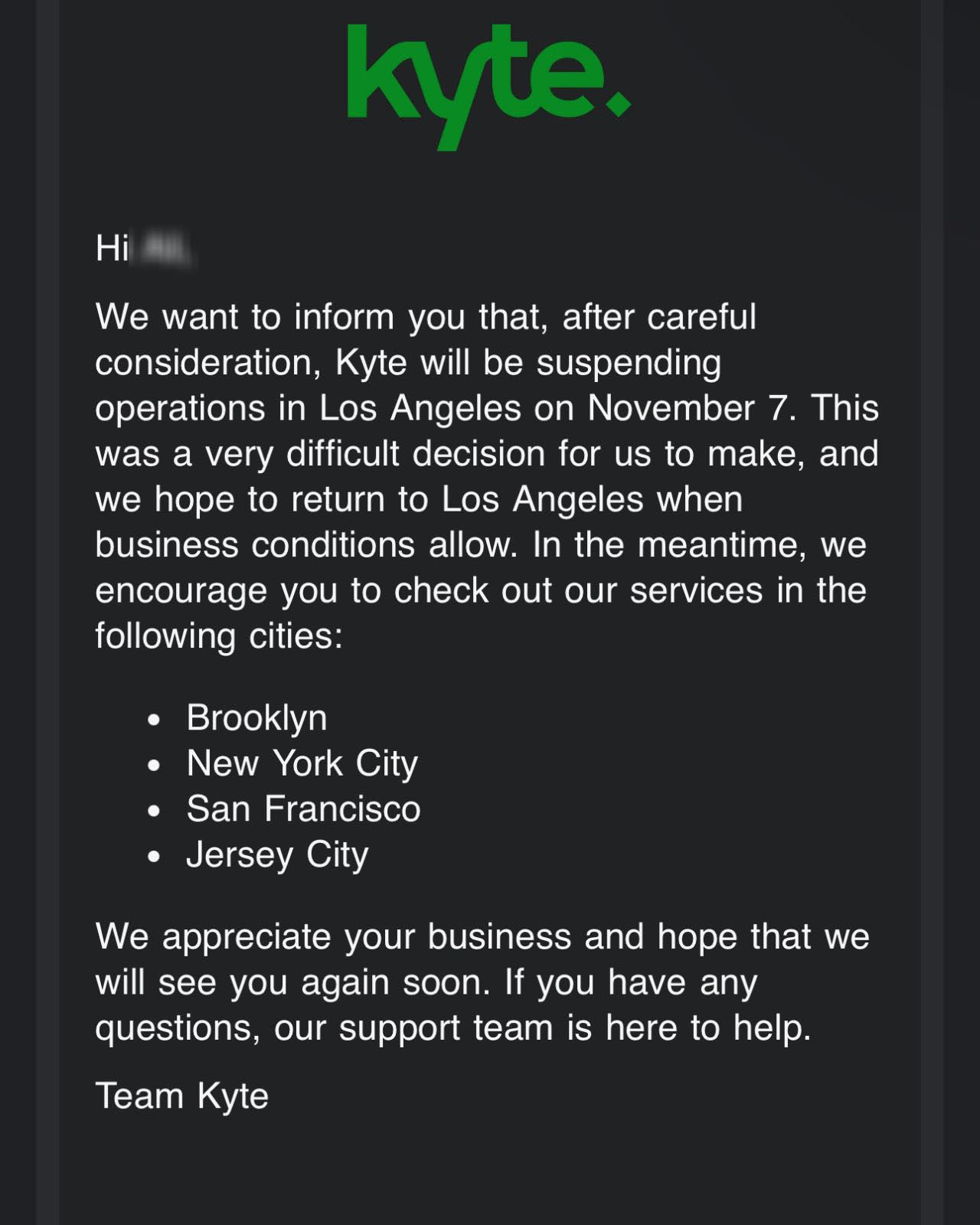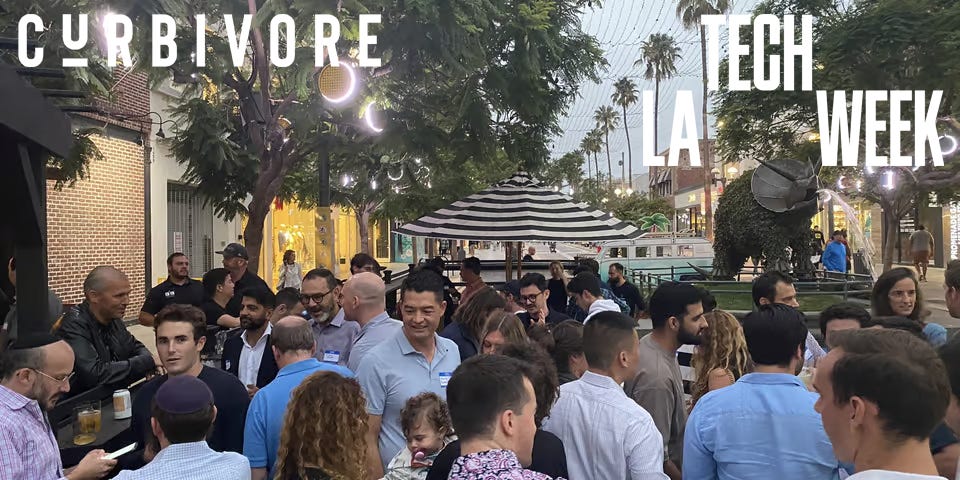Discover Zag Talk
Zag Talk

Zag Talk
Author: Jonah Bliss
Subscribed: 0Played: 0Subscribe
Share
© Curbivore
Description
Jonah and Greg give you the low down on all the week's latest urbanism, delivery, mobility and tech policy developments.
www.thecurbivore.com
www.thecurbivore.com
21 Episodes
Reverse
Managing policy for DoorDash is no mean feat; the globe-spanning 3PD often finds itself interfacing with cities across all sorts of issues: traffic / road safety, merchant relationships, courier behavior and more (and as the company continues to push into new territory — like drones or its in-house delivery bot — the regulatory interactions will only grow.)That’s why we were delighted to sit down with Max Rettig, Vice President, Head of Global Public Policy at DoorDash, to understand how the company views the policy landscape. Under his leadership, DoorDash has advanced some quite novel policy that has the opportunity — including portable benefits — to ensure gig workers receive health and safety net contributions — that stay with them even as they hop between competing platforms.Also on the pod… Jonah chats with Sela Musa about driverless trains, the latest spac-tacular startup, Telo trucks, the state of micromobility in the UK, and more. Listen in! This is a public episode. If you would like to discuss this with other subscribers or get access to bonus episodes, visit www.thecurbivore.com
Delivery is tough work, especially in dense, urban environments. Couriers and policymakers often find themselves pulled between competing priorities: cash-strapped workers often don’t have the resources to invest in a good e-bike, driving them to cheaper alternatives that aren’t reliable enough to get the job done and are prone to dangerous battery fires.That’s where Whizz comes in, offering courier-oriented e-bike rentals, while bundling in tricky things like maintenance and charging. And while renting is already easier on the wallet, Whizz is working with both the 3PDs and select cities to further subsidize their bikes, putting sustainable options into the hands of those that need it most.With the Zag Daily podcast now back from its summer break, Jonah caught up with Whizz’s co-founder Mike Peregudov to hear about the company’s latest expansion plans, the lessons he’s learned as he’s scaled the business, what it’s like to work with the big apps and even bigger cities, plus much more. Greg and Jonah also chat about Via’s IPO, while Athena Browning stops by to fill us in on all things connected and aerial. This is a public episode. If you would like to discuss this with other subscribers or get access to bonus episodes, visit www.thecurbivore.com
Hydrogen is having its moment—not because of hype, but because the economics and demand finally line up. Heavy industry, shipping, and aviation are desperate for clean fuels, governments are throwing serious subsidies behind hydrogen production, and technologies that once seemed speculative are now commercially viable. For early-stage investors, this isn’t a science experiment—it’s a chance to back the picks and shovels of the next energy gold rush.On today’s episode of Zag Talk, Jonah Bliss joined by Sam Baker, who not only leads the MobilityVC fund, but has spearheaded a new collaboration with the Monaco Hydrogen Alliance to create the MH2Fund. MH2 will back promising early stage hydrogen startups, and we’re kicking things off with a new round of funding for SunGreenH2, a pioneering developer of low-cost, modular green hydrogen electrolysers.Also on the pod: Greg and Jonah talk Brightline bond troubles, LA’s newest rail lines and much more, while Sela stops by to update us on the UK’s newest twist to its long-running micromobility pilot. This is a public episode. If you would like to discuss this with other subscribers or get access to bonus episodes, visit www.thecurbivore.com
On this week’s episode of Zag Talk, I’m joined by Steve Greenfield, General Partner at Automotive Ventures. Steve knows the mobility industry inside and out, having jumped from Manheim, Autotrader and TrueCar to investing in promising startups like Axion Ray, JOCO, Recurrent and SparkCharge.Steve shares his thoughts on where the industry is headed, but also what he’s found makes for a great entrepreneur, including honesty, integrity, EQ as well as IQ, and the feeling that “you want people that have, somewhere along their journey, found something secret” that they now feel compelled to build or solve.Also on the pod, Greg and I break down Moove’s $1.2B deal, pontificate on the Department of Sustainable Delivery, and also talk about Also; plus, the Zag team heads to the European AV Summit. Listen in! This is a public episode. If you would like to discuss this with other subscribers or get access to bonus episodes, visit www.thecurbivore.com
This week on the podcast, we’re joined by Gita Gupta, VP, Director of Emerging Technology and Digital Economies, Global Technology Risk Practice at Lockton, and we go deep on all things risk, insurance, and fraud: three words that might make founders’ eyes glaze over… right up until they’re eating your company alive.Whether you're scaling a delivery platform, launching a micromobility fleet, or building the next generation of autonomous vehicles, your biggest threat might not be competition — it could be what’s hiding in your terms of service, rider behavior, gig workforce or payout liability. From staged crashes to underinsured drivers, bad actors and blind spots can break even the best product.Gita walks us through the biggest risks emerging mobility and logistics companies face, how insurance can be strategically positioned, and what founders often get dead wrong about coverage. It’s part cautionary tale, part tactical playbook—and essential listening for anyone building in this space. Because at the end of the day, if you don’t understand risk, you (and your investors) can’t understand your business.We’ve also got a few more fun items on this week’s show: Greg and I veer from AVs to politics, and the Zag Daily crew heads to Eurobike for the latest and greatest on two and three wheels. This is a public episode. If you would like to discuss this with other subscribers or get access to bonus episodes, visit www.thecurbivore.com
If you step out onto a street corner in NYC these days, you’ll instantly notice the city is buzzing with delivery workers: couriers zip across streets and sidewalks — not always quite following traffic laws — to deliver food, packages, documents and more. It can be a tough job with low pay, meaning these workers can often only afford the most bare-bones of e-bikes to make their jobs tenable.That in turn has led to a battery fire crisis: poorly made batteries, beat-up hardware and shady charging situations have culminated in dangerous conflagrations destroying businesses and homes. And in turn, a number of startups have emerged, hoping to provide more reliable charging solutions to keep couriers, and their livelihoods, safe and sound.On this week’s episode of Zag Talk, Jonah Bliss sat down with PopWheels’ President & Co-Founder David Hammer to hear about his unique path into the hardware space, how to work with cities, fundraising, and the uniquely fun experiences you can have when you’re building a product for delivery workers.And while Greg and Jonah of course also banter about the week’s news, we’ve got another special feature: Sela Musa stopped by Micromobility Europe to report on all the latest two-wheeled innovations fresh on display in Brussels. This is a public episode. If you would like to discuss this with other subscribers or get access to bonus episodes, visit www.thecurbivore.com
From delivery bots, to cargo bikes, scooters and LEVs… our streets have become a hodgepodge of busy little machines, transporting goods and people to their last mile destinations. But keeping those devices charged, and those packages sorted is no easy feat, especially in cities where real estate is at a premium and when officials are especially guarded about fire safety risks.Tom Schreiber, Founder & CEO of Perch Mobility, has a solution in the form of his eye-catching, modular “Portal” shipping containers, strategically placed in cities like Los Angeles and NYC. But even with marquee customers like Lime and familiar delivery brands, fundraising for a capex-heavy business has proven a challenge. In today’s episode of Zag Talk, Tom and I get into the art of “seed strapping” a business that can outlast the boom-and-bust cycles of the past few years.Greg and I are also joined by Zag’s Senior Correspondent Sela Musa, as we gab about new economic research on surge pricing, North America’s firsts shared dockless cargo bike, leadership shakeups at Uber and much more. Listen in!Get show notes and more news at The Curbivore. This is a public episode. If you would like to discuss this with other subscribers or get access to bonus episodes, visit www.thecurbivore.com
Startup founders often believe so deeply in the mission of their business that they struggle to see how the world could exist any other way. They adopt a mindset akin to “once my product breaks through, all the naysayers will understand they were wrong to doubt its importance.” Or to borrow a phrase from Mark Zuckerberg, they “move fast and break things.”That may work when it comes to scaling a social media app or SaaS platform, but things are a bit different for products that don’t live solely on your phone. Governments and policymakers set up the regulations that govern our mobility options in response to real problems observed in the past. And as frustrating as that may be to some founders, in the end they’ll usually get better results from working with cities, as opposed to against them.That’s why, for the latest edition of Zag Talk, Jonah was so excited to sit down with Sam Roxas, co-founder of Common Good Strategies, to talk about how new mobility startups can better engage with the public sector. Before opening up her own policy shop, Samantha worked for the City of San Francisco, the SF Board of Supervisors, congressional leaders and SPUR, then jumping over to startups like WeWork, REEF and Replica.Beyond Samantha’s sage advice, Greg and Jonah are also joined by Zag editor Ben Hubbard, as we go deep into the past week’s most pressing industry updates. This is a public episode. If you would like to discuss this with other subscribers or get access to bonus episodes, visit www.thecurbivore.com
Your favorite mobility and delivery podcast is back, but with a whole new twist! Jonah Bliss and Greg Lindsay have teamed up with Zag Daily to bring you Zag Talk, bringing you fresh news, in-depth interviews and witty analysis every two weeks.To kick things off, we’re chatting with Zach Rash, CEO & Co-Founder of Coco Robotics. Coco and DoorDash just announced a huge new partnership (shared live from the stage at Curbivore 2025.) Jonah Bliss caught up with Zach beforehand, to get his founding story, why he’s set out to solve urban robotics, the company’s latest hardware developments and the economics of its business model. This is a public episode. If you would like to discuss this with other subscribers or get access to bonus episodes, visit www.thecurbivore.com
Few publications have their fingers on the pulse of new mobility quite like Zag Daily. In just the past month, the UK-based publisher has tracked the rise of the robotaxi market, covered the launch of inventive new micromobility options like the Otherlab solar-powered Lightfoot, and has closely covered the eVTOL industry’s rocky descent. Add in some great op-eds and interviews, and you can see why we’re often linking out to their site.That’s why I really enjoyed today’s interview, where Zag’s Editor Ben Hubbard stopped by (at 29:20) to discuss his high level view of what’s gone right and what’s gone wrong with the overall state of new mobility on both sides of the Atlantic. He also offered up some actionable advice for startups entering the space, including how to make your press pitch stand out in his crowded inbox.Greg and I also get into the week’s news, diving in on juicy topics like Uber’s very Xmas-y feature launch, cyber weekend sales stats, the sad state of Fisker, and our favorite stories from the past year. This is our last episode of The Courier for the season, but expect us to be back in action in 2025 — please pitch us on guest recommendations! This is a public episode. If you would like to discuss this with other subscribers or get access to bonus episodes, visit www.thecurbivore.com
At this point it’s not exactly news that it’s a tough fundraising environment out there for new mobility startups, especially ones with a hardware focus. That’s what makes it all the more impressive that Joseph Cohen was able to raise $9 million for Infinite Machine, with the round led by a16z. While Joe might not have a transport hardware background, he dreamt up an eye-catching vehicle — the P1 — that he hopes will get urban Americans out of cars and onto more sustainable two-wheelers.He’s got big plans for the company's post-$10k halo vehicle: cargo-oriented vehicles, three-wheelers, and more. We talk about that, his design background, how he sold Andreessen on his vision and so much more, in today’s turkey-tastic edition of The Courier. Listen in! This is a public episode. If you would like to discuss this with other subscribers or get access to bonus episodes, visit www.thecurbivore.com
Tatiana Peralta Quirós has had quite the impressive career: educated at both MIT and Harvard, thoughtful research works with the likes of Gensler and the World Bank, before going on to advise the President of Costa Rica on urban mobility and technology, modernizing LatAm’s automotive giant’s Grupo Purdy Motor as Chief Innovation Officer and then launching Kinto in Costa Rica, helping push Toyota towards new mobility in emerging markets. Today she serves as a Partner at MobilityVC, where it’s been an absolute delight to serve alongside her on a few very interesting autotech projects.In today’s wide-ranging interview — starting around 15:20 — she shares all she knows about mobility in Latin America, offers some advice for others looking to jump start their own transportation careers, and offers a general master class in automotive knowledge. Before that, Greg and I riff on our incoming transportation czar, Uber Eats’ top cravings, new IPO news, the surge in grocery delivery and so much more. This is a public episode. If you would like to discuss this with other subscribers or get access to bonus episodes, visit www.thecurbivore.com
If you think about the transportation world as “new mobility” and “old mobility,” it often seems that despite all the innovation of the past few years, it often happens in its own silo, leaving the classic world of American transportation — car dealers — unaffected. So that’s why this announcement, that Connexion Mobility has launched a partnership with Uber, caught our eye. This allows car dealers to dispatch courtesy vehicles for customers who’ve brought their own cars in for service, tapping into Uber’s pool of gig drivers, as opposed to forcing dealerships to maintain their own clunky networks of shuttles (or deal with maintaining a loaner fleet.)Jonah Bliss chats with Connexion’s CEO Aaryn Nanioa about the launch, plus he gets into his own non-traditional path to the mobility world, as well as what it’s like running a publicly listed company. This is a public episode. If you would like to discuss this with other subscribers or get access to bonus episodes, visit www.thecurbivore.com
In this week’s edition of The Courier, Jonah chats with Rick Neubauer, Founder and CEO of Umojo. Rick’s mobility journey is an interesting one, with Umojo getting its start in the glamorous world of parking management. But as the action shifted to the curb, Rick sensed an opportunity, and now Umojo’s NexCity software helps cities like Boulder and Sacramento keep their streets and sidewalks well orchestrated. With an eye to the future, Rick also senses a few complementary uses for his tech that most cities haven’t unlocked yet, either.Rick starts at 20:45; before that hear the latest from Greg and Jonah on transit ballot measures, supply chains, and the financial results from the likes of Uber and Yum! Brands. This is a public episode. If you would like to discuss this with other subscribers or get access to bonus episodes, visit www.thecurbivore.com
Alex Roy knows two things — how the mobility world works, and how to tell a damn good story. On the first front, he established himself on the legendary Cannonball Run race, held the record for fastest lap around Manhattan and served as Director of Special Operations for Argo AI. On the latter, he chaired the board of storytelling org The Moth, co-founded The Drive, co-hosts The Autonocast and even opened iconic nightclub The Box (I’d argue that few businesses rely on stories and mythos more than nightlife.)Now he’s brought those two passions together with a new early stage venture fund — NIVC — that he’s started with ex-Rivian manufacturing maestro Patrick Hunt. Alex is looking to invest in companies that have what he calls “narrative command,” meaning they drive the conversation around their entire vertical. As Alex tells, it’s why the Ubers and Teslas of the world succeed, while the Argos don’t make it. Tune in (starting at the 17:10 mark) for a wide ranging conversation on mobility investments, AV regulations, semantics, charismatic leadership and more. This is a public episode. If you would like to discuss this with other subscribers or get access to bonus episodes, visit www.thecurbivore.com
With respect to the dozens of other companies that go by Kyte or Kite, the car rental via delivery startup Kyte looks like it may have hit a very bumpy road. Last week, Los Angeles-area customers received word the company was pulling out of the market — the nation’s largest for car usage — after about four years of local operations.Intrigued, I headed to their website, where even earlier this week the homepage still touted their availability in other major markets like Chicago and Boston. But while those cities still have landing pages up, punch in a rental date after 11/7 and you’ll see that no cars are available. Other regions that seem to have lost service include Philadelphia, Atlanta, DC and Seattle.It’s possible the company’s been hunting for fresh cash for some time now, despite closing on a $250 million debt facility in March. While the company’s reportedly been doing the rounds for traditional venture investment, it also seems to have kicked the tires on a crowdfunding campaign via StartEngine. Equity crowdfunding has a mixed track record, but at least with consumer-oriented, hardware-focused brands you can make the case that consumers are buying into a product they like and getting a physical perk out of it; Kyte’s investment perks are discounts on car rentals, that’s about as exciting as when the local little league team sells of those books of coupons to nearby businesses.As I learned at Turo, renting and sharing cars is a tough biz, even the big guys like Hertz and Avis are facing slumping sales these days. Other upstarts have seen worse fates: Fluid Truck just filed for Chapter 11, Upshift — which also delivers cars to users — seems to be pivoting to fleet software (Greg shares more in the podcast.)One big challenge for operators in this space is figuring out if you’re appealing to locals or travelers. If you’re going after travelers, you need to be available at the airport, and you plant the flag in tourist-heavy cities like Vegas and Orlando, even though they have smaller local populations. Kyte seemed more focused on serving locals, trying to get car-light denizens of coastal cities to use the service when they needed a ride for a special occasion.Tune in to the podcast for more thoughts on why that’s so challenging a model. Greg and I also chat about Walmart vs Amazon, and then Placer.ai’s Head of Analytical Research R.J. Hottovy stops by to talk about other winners and losers, both on the retail brand level and in terms of metropolitan areas. Listen in!This episode brought to you by PizzaBox AI. This is a public episode. If you would like to discuss this with other subscribers or get access to bonus episodes, visit www.thecurbivore.com
Making delivery work is darn difficult: even when everything’s going well with the customers and the kitchens, you still have to manage hundreds of thousands of very loosely managed workers. With unaligned incentives, why should a courier make sure an order is right, or wait around for a customer that’s running late, or even verify that a would-be scammer actually did receive their order?One potential solution to this problem would be to convert 3PDs to a delivery service partner (DSP) model, similar to the one used by Amazon or FedEx. That leads to local businesses owning their routes in different cities, keeping management closer to customers and workers. We’ve actually just seen DoorDash start exploring this concept, as it launched its Local Service Partner program in Austin and Fresno.This week I sat down with First Delivery’s CEO Andrew Nakkache to game out how this system might work at scale, and to learn more about how he’s built his own delivery software business.This episode brought to you by PizzaBox AI. This is a public episode. If you would like to discuss this with other subscribers or get access to bonus episodes, visit www.thecurbivore.com
When’s the last time you pulled up to a gas station and the pump didn’t work? While that’s a very rare occasion indeed, it’s sadly all too frequent an occurrence in the world of electric vehicle charging. And if people aren’t confident they can power up their cars, they’re not going to want to switch from gas-powered vehicles.Kameale C. Terry saw first hand just how many of those reliability problems were relatively easy to solve, and so she started ChargerHelp! to partner with charging networks nationwide to help them get their uptime stats into acceptable territory. She joined me to “nerd out” about EV charging hardware, workforce development and scaling a labor-intensive business.Plus, Greg and Jonah pontificate about exactly what sort of vaporware Tesla might reveal at tonight’s “We, Robot” event on the WB backlot, and get into the weeds with all the latest developments from Amazon, Uber, Waymo, DoorDash, camera-based bus lane enforcement and more.This episode brought to you by PizzaBox AI. This is a public episode. If you would like to discuss this with other subscribers or get access to bonus episodes, visit www.thecurbivore.com
Anyone that’s been following the news knows it’s been an interesting time in New York City governance, to say the least. At the state level, Governor Hochul killed congestion pricing at the last second, and now a federal indictment of Mayor Adams has made things even more complicated.Despite that, every day thousands of city workers show up and put in the hard work it takes to make city life — transportation, the environment, public space, delivery logistics — function a bit better. That’s why I was so excited to sit down with Dawn Miller, Senior Advisor to NYC's Chief Climate Officer, about all the amazing mobility initiatives still being pushed forward: the electrification of delivery and micromobility, a climate resilience plan, reducing indirect emissions, and so much more.Prior to her current role, Dawn served as Deputy Chief of Staff to the Mayor, VP of Policy and Partnerships at Coord and Chief of Staff at the Taxi and Limousine Commission, so she also shares a number of helpful insights into how to sell a mobility or curb solution to government.This episode brought to you by PizzaBox AI. This is a public episode. If you would like to discuss this with other subscribers or get access to bonus episodes, visit www.thecurbivore.com
After a brief summer break, The Courier is back in action. Jonah Bliss and Greg Lindsay explore what makes the urbanism of France — both old and new — work so well. But, might there be somewhere exotic in America that offers a taste of that progress? Then, Jordan Justus, CEO and Co-Founder of Automotus, drops by to discuss the state of curb management worldwide.Tune in for the full discussion, but scroll through on thecurbivore.com some images of great French streetscapes for a full visual accompaniment.This episode brought to you by PizzaBox AI. This is a public episode. If you would like to discuss this with other subscribers or get access to bonus episodes, visit www.thecurbivore.com


